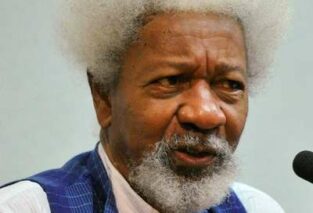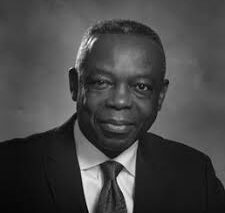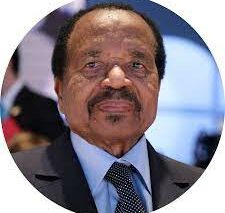(Revised and reproduced from L’Effort camerounais No 71, 30 May – 13 June 1997).
A film-maker from Angola, Rui Duarte, is a dignified-looking, pipe-smoking, elderly, gracefully-greying, bald-headed gentleman, who was among a number of film-makers from Lusophone (Portuguese-speaking) Africa at the 1997 African film festival in Milan. A poet of renown and a companion in arms of late Agostinho Neto, Angola’s best known poet and first President, Rui Duarte is also a professor of anthropology in Luanda with a doctorate degree from the prestigious Sorbonne in Paris. In the following interview, he talks about the positive the cinema plays in society, especially among the youth.
What led you into film-making?
I have long been known as a poet and when I also spent a year in London, I took a few courses in film-making and in television. That was during the early days of the independence of my country, Angola. The Portuguese had left behind them a good infrastructure for making television and we took advantage of that to make our own television programs and films. I made a series for television and there is nothing greater than the cinema to give the youth a voice where they would otherwise not be heard.
What were your favourite themes?
I was interested in the everyday life of our people, the ordinary people, who toil daily for a living. I also made a fiction film using traditional folktales in which I invited people to play the role of their mythical heroes. Unfortunately, the war came and everything ground to a halt.
How do you see the future of the cinema in Angola?
It is the same problem facing the cinema all over Africa. African films for now are only seen in festivals. That’s unfortunate indeed, making films only to be seen during festivals is to me pure art for art’s sake. Local television stations don’t use local films and documentaries, preferring to import those shot in Europe or North America at exorbitant prices. When you ask me what the future of the cinema in Angola is, I ask myself what the future holds for Angola as a country. When we were coming out of the civil war, we thought it was all over but now we are getting involved in the war in Zaire. Angola finds itself in an uncomfortable position between western and central and southern Africa, and whenever a conflict breaks out in any of these regions, it is bound to spill over into Angola. That’s what you suffer when you are too rich.
Let’s leave the cinema for a moment and talk about your work as a poet.
I express myself in Portuguese, a very expressive language but unfortunately one that is not as widely spoken as French or English. I have many collections of poetry and I have done quite some work on the poetic aspects of proverbs, maxims and other phenomena of African poetry. I have had these translated into Portuguese, French and English, but such translation has unfortunately not been done by poets but by literary men, who usually give a literary translation, thus losing a great deal in the process. That’s why I am looking forward to the day a poet shall restore to them their poetic resonance and dignity. It’s something that could benefit not only Lusophone countries but every other country as well.
I suppose you are a member of the union of Angolan writers?
Yes, I am one of its founding members. It was those of us who were already active during the colonial period in the fight for our liberation and who continued with a leadership role shortly after independence who founded the union of Angolan writers. After 22 years of existence, things have changed, conditions in the country are no longer what they were before and I’m not still quite sure what its present role really is. Many Angolan writers are now living outside the country as life in Angola has become really difficult. A few of us have remained in the country but I have long forgotten about that union. It has lost the essence of its initial role. But now that we have our independence, there is a new and younger generation that has come onto the scene and should define its own priorities.


